In CA: In the West, we gear up to reopen and our curve is down, so why no national props?
The Golden State gets ready to open for business — on paper, at least. We'll find out more on Tuesday. And the state's quick action is being praised for its quick response to the coronavirus pandemic. Plus: Over the last month, everything about our world feels more threatened, a new poll shows.
It's Arlene Martínez with news to kick off another sheltering-in-place week.
But first, I don't just come bearing bad news. The California Department of Fish and Wildlife has recommended listing the Joshua Tree, the Southwest's weird, twisted, Dr. Seuss-esque plant, under the state's Endangered Species Act.
Not only would the designation make it harder to build over dwindling tree habit, but an ultimately successful inclusion onto the list could make it easier to get legal protection for other species under threat by climate change.
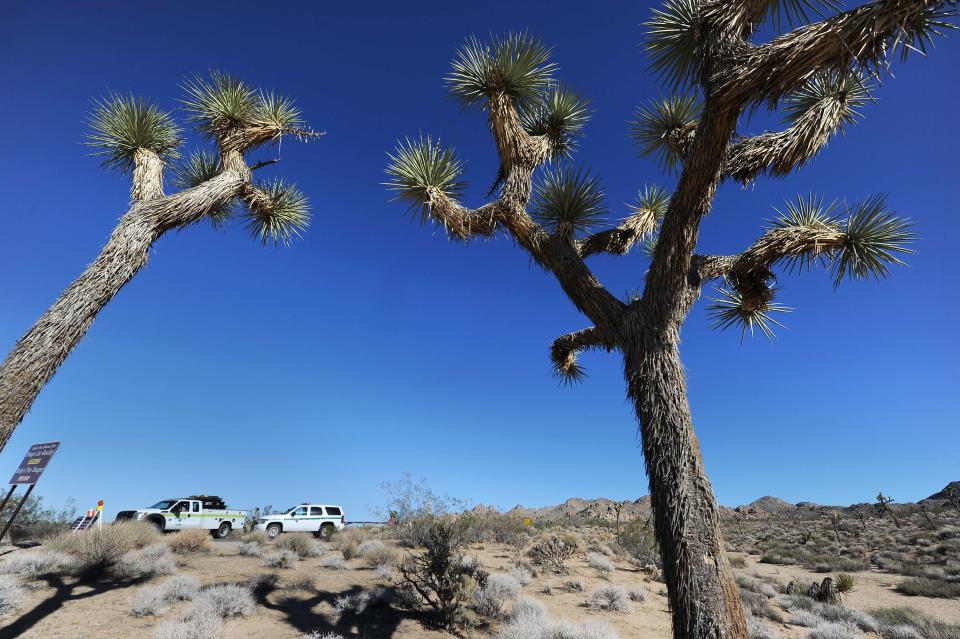
In California brings you stories and information from newsrooms across the USA TODAY Network and beyond to keep you safe and informed. Subscribe today for free delivery right to your inbox.
California, Oregon, Washington ready 'shared vision' to reopen life
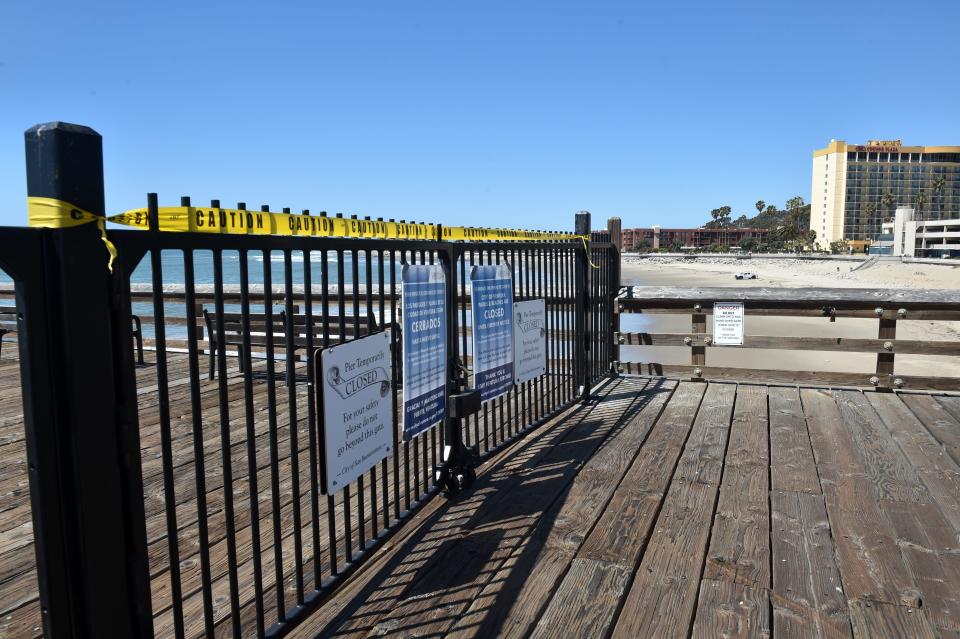
Residents have spent weeks under shelter-in-place orders put in place to help contain COVID-19, which was declared a global pandemic on March 11. On Tuesday, Gov. Gavin Newsom said he will share plans to transition back to normalcy.
Newsom, during his daily briefing on Monday, said the strategy is part of a "shared vision" with Oregon Gov. Kate Brown and Washington Gov. Jay Inslee. The three states have developed a West Coast framework for reopening, they say, without sacrificing efforts to control the spread of the coronavirus.
Want California news straight to your inbox? Sign up for our newsletter here.
"Through quick and decisive action, each of our states has made significant progress in flattening the curve and slowing the spread of COVID-19 among the broader public," the governors said in a joint statement issued Monday, emphasizing that, while each state will have its own strategy, the plans will rely on a health-focused collaborative effort.
As of Monday morning, there were 22,348 cases of coronavirus in California and 687 deaths. Newsom warned residents not to let up on social distancing, which is working. "The curve is being bent because of you," he said.
Coronavirus emergency expenditures will cost California $7 billion, officials project.
Why wasn't California more prepared for the coronavirus?
Squeezing $ for housing, auto insurance savings and a job lead
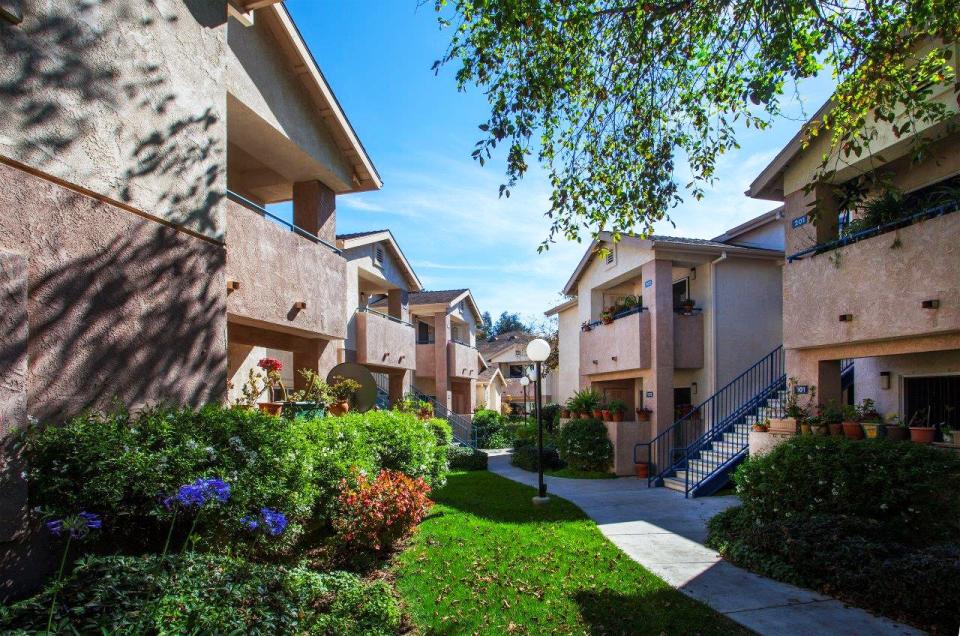
Melissa Melendez is a paralegal working reduced hours, and her husband's barbershop is closed. The Ventura County family of six told their landlord they wouldn't be able to pay their April rent, a scenario playing across the country: 16.8 million are seeking unemployment help and nearly a third of renters as of last week hadn't paid their rent this month, the National Multifamily Housing Council said.
Luckily for Melendez, her residential landlord and the commercial landlord for her husband's barbershop were understanding.
Property owners in the Bay Area are asking whether tenants have savings or "other resources" that would allow them to pay rent. One tenants' attorney said requiring such information would not be legal.
Getting money back for your auto insurance: The state ordered insurance companies to provide partial credits or refunds on six types of policies in places where the risk of loss has substantially decreased because of the coronavirus, California Insurance Commissioner Ricardo Lara said. State regulators have to first sign off on the plan.
How's your auto company doing when it comes to refunds? The Consumer Federation of America grades them.
Amazon plans to add 75,000 new full- and part-time workers to go with the 100,000 it's already brought on board to meet demand during the pandemic.
Poll: A seismic shift in the way we grew to feel about the coronavirus
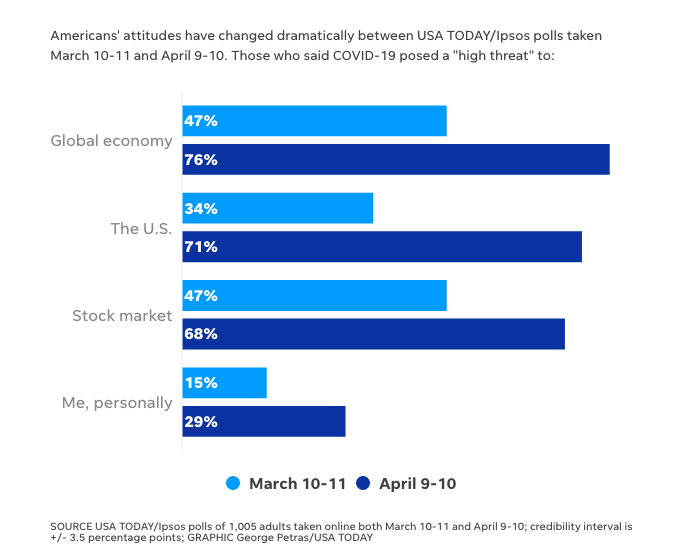
USA TODAY and Ipsos conducted a nationwide poll about COVID-19 on March 10-11, when the coronavirus pandemic was gaining steam.
Last Thursday and Friday, the same poll of 1,005 adults nationwide measured how public attitudes changed as the reality on the ground worsened.
The poll found a sharpened sense of the dangers and an increasingly somber assessment of the challenges ahead. “America is a different place than it was a month ago,” says Cliff Young, president of Ipsos.
In dramatically higher percentages than around this time last month, respondents last week said the coronavirus posed a "high threat" to the economy, stock market, country and themselves.
But winners in the poll? Governors, who as a group were more highly trusted than the president by 25 percentage points, a difference that could be significant if there is a clash between statehouses and the White House about when parts of the nation can safely reopen.
Ellen Covarrubias, 69, a Republican from Los Angeles, supports President Trump, but also Gov. Gavin Newsom and Mayor Eric Garcetti — both of whom are Democrats. "It's been long and hard," she says, but she has settled into a new routine. She looks forward to the time when things get back to normal, but "I know we need to be cautious."
At a Tulare County nursing home, staff describe a tragedy of its own making
Nursing homes have been hit particularly hard by the coronavirus pandemic in the U.S., but the staff at one in Visalia say the tragedy that now grips the facility is one of its own making.
The Redwood Springs Healthcare Center now accounts for six deaths and 112 cases, one of the state's single worst outbreaks.
Half a dozen nurses said they did not have access to personal protective equipment prior to the discovery of the outbreak in late March. Other staff members reported being compelled to work despite running low-grade fevers and not feeling well. At least two staff members said that residents showed symptoms of the virus before the health department was contacted.
Related: At least 2,300 nursing homes have coronavirus cases, and the reality is likely much worse. Why? Data is incomplete or missing from state to state.
What else we're talking about
911 calls have gone down as people #StayHome. But in a dispatch center on the Central Coast, a place no stranger to disaster, first responders wait and prepare for an "invisible wildfire."
“Tell the world I’ve got this s—," Tessie Henry said, four days before she died — alone, to the grief of her children — as San Francisco's fourth-recorded death from the coronavirus.
Burning Man is canceled for the first since it started in 1986. There will also be layoffs, pay cuts and other cost-cutting measures at the San Francisco nonprofit that hosts it.
Why have no PG&E higher-ups, responsible for overseeing decisions and managing a critical utility, been held personally responsible for failures that led to over 100 deaths? (Opinion)
Golden State's decisive, early action appears to pay off
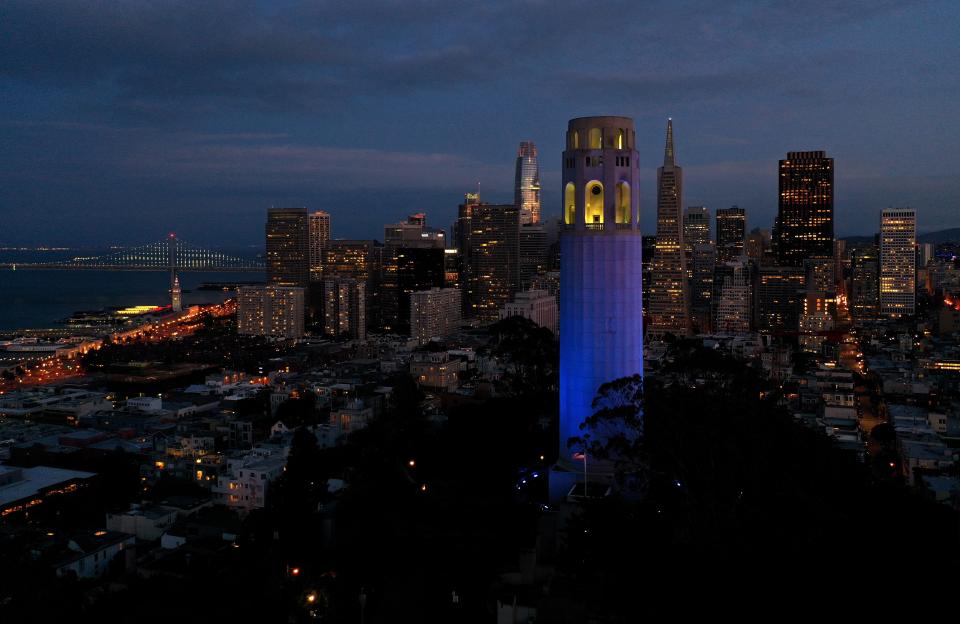
The coronavirus death toll in the U.S. had barely surpassed 100 in March when a group of counties in the Bay Area enacted a sweeping “shelter-in-place” order.
The order had residents going to Google to find out what it meant. Fast-forward a month, and more than 310 million Americans are familiar with what at first seemed like a drastic response, with just eight states holding out against “stay-at home” orders amid this public health emergency.
That decisive early action – followed soon by Gov. Gavin Newsom – has California confident in its fight against the novel coronavirus, despite the state having the country’s second-most populated city in Los Angeles, said Dr. Josh Salomon, a professor of medicine at Stanford University.
On Wednesday, the state is projected to reach its peak for daily COVID-19 deaths with an estimated 66 deaths, according to the University of Washington’s Institute for Health Metrics and Evaluation (IHME).
Contrast that to the slower-moving New York state, which has become the epicenter of the country's coronavirus outbreak. The state is expected to have nearly 800 deaths on Wednesday and, according to the IHME's data, hit its daily death peak on Thursday.
So ... why is New York's leader getting all the attention, when the efforts of quick-acting leaders in California, Washington and Oregon have, at least so far, helped mitigate worst-case scenarios? In part, geography.
That's it for today. I'll be back Tuesday with specifics on that tri-state plan to get back to normalcy. Don't miss a thing by signing up for daily delivery right to your inbox.
In California is a roundup of news from across USA TODAY Network newsrooms. Also contributing: San Francisco Chronicle, New York Times.
This article originally appeared on USA TODAY: Joshua Tree, nursing home, coronavirus, endangered, California

